|
"I came to the Wednesday evening discussion after an intense forty-eight hours. Literally every waking moment that I was not rehearsing, teaching, in a meeting, driving, or eating, I had spent furiously writing a grant. The discussion was a relief because I walked into a room of people who knew exactly what my crazy forty-eight hours felt like. They had all been there before and they were talking about it! Both the practical challenges and the philosophical questions we all ponder, and why we started our organizations in the first place. I felt less alone.
It is rare that I get to have such important conversations with fellow musicians who understand my working life, because we are all so busy trying to make our projects happen! I learned so much from the questions that were posed and the experiences that were shared. I made it a priority to attend #MusiciansAtWork because Palaver Strings had been coming up in my newsfeeds and emails lately, and I wanted to get to know the group better, as well as connect with other attendees who I knew are also part of Boston's cultural ecosystem. Heath has a gift for bringing together passionate, motivated, intelligent people and getting them to have important conversations. He asks amazing questions that get to the heart of the matter. He does it in such an honest way that it invites others to also be honest and vulnerable in their responses. #MusiciansAtWork discussions fill a great need for community, encouragement, reflection, and learning from each other. I don't know of any other place where this happens."
0 Comments
Continuing the recent theme of mobility and engaging communities, I was inspired to check in on Yellow Barn's Music Haul, which first hit the road in October 2015. More recently, Music Haul toured Boston and was profiled by Malcolm Gay in The Boston Globe: “We exist in the world as musicians that is in a way so finely controlled and tuned,” said Yellow Barn’s artistic director, Seth Knopp. “Music Haul removes some of the ceremony, which can be a barrier for people who are not often exposed to that world. There’s an element of taking something out of its accustomed place and allowing it to take people by surprise.” "Knopp said when it comes to Music Haul, which is also equipped with marine speakers to blast Yellow Barn recordings en route, a key element is in the wonderment afforded by surprise. “Because it’s unexpected, people will not have preconceptions, and they won’t feel the fear of ignorance in the face of an experience they’ve never had before,” he said. “Without that expectation, you have a kind of vulnerability, an openness, that one needs to listen in the best possible way.” This September, you can expect to find Music Haul engaging new audiences in mid-coast Maine. In related audience engagement efforts, honorable mention goes to Music Haven's String Quartet Truck and Steuart Pincombe's Music in Familiar Spaces road trip across most of the US.
Recently, I have been thinking with Andrea Landin (Sistema Fellow '13) about how to help her find the best possible successor when she steps down in June from her role as founding director of the New West Symphony Harmony Project of Ventura (CA). Whoever takes over from Andrea needs to be able to lead the musical development of the Project's many young students, but when considering the program's youth development mission in the context of the community it serves, it is evident that the program's next leader cannot be measured by his or her music education credentials alone.
Someone recently used the word "unicorns" to describe the challenge of finding musicians and music educators who are both predisposed and prepared to do creative youth development work that is responsive to community needs and assets. I love the way that Andrea has chosen to describe the unicorn that she is now actively seeking. I'm crossing my fingers that her search is successful. Here's a bold proposal that I found tucked away in the middle of an evaluation of Music in Maine, authored by Andrew C. Holmes in 1968(!). A good reminder that entrepreneurial thinking about arts engagement and audience building in not a 21st century invention.
This post is based on a #MusiciansAtWork conversation in March 2017 with Boston-based freelance singers Lindsay Conrad (NEC MM ’11), Seth Grondin, and Bethany Worrell (NEC MM ’11).
I’m so appreciative to Lindsay, Seth, and Bethany for being both candid and generous. Following is a summary of what I found most salient and important to share to benefit other singers. My three featured guests tended to be in general agreement with each other’s statements, and I am therefore intentionally presenting their ideas without specific attribution. The challenges of becoming established Generally speaking, personal connections are hugely important in the freelancing community for opening up opportunities for further work. This includes making connections with conductors. Why? “Anyone conducting a community chorus is surely conducting other groups.” Word of mouth is powerful. It is advantageous to think of other singers as your friends, not your enemies. “If your friends are successful, then you are on a good plane” by association, and they become resources and referral sources for other professional opportunities. “You don’t know who is watching, so you always do your best work” independent of the pay level. It could be a colleague, chorus manager, or even an audience member that becomes an important connection to your next job. You will “see people who will get away with mediocrity” but “at a certain point, everyone is good. It comes down to how prepared you are, how good a colleague you are.” One other note on the importance of connections and community: it’s wise to assemble a personal advisory group/support team of colleagues and friends who will have your back when the going gets tough, and it will inevitably get tough. “Who are your people?” It is “important to keep a structure for yourself like you had in school.” The challenge is that now you have to schedule all of your own performance preparation (e.g. rehearsals, coachings, and memorization). There’s also the challenge of learning to say "no" to some opportunities in order to avoid high stress or burnout (e.g. having a performance project to learn and rehearse every three weeks is preferable to one every two weeks). There have been significant changes in the opera industry over the past decade: no longer is there a single path to success through Young Artist Programs. This is due to the decline in professional opportunities as some of the large and mid-sized opera companies have closed down. Meanwhile, at least locally, there has been a noticeable increase in small companies’ activity, but there is definitely an upper limit for opera-related employment if you choose to focus on a regional career without including regular domestic (and even international) travel for additional professional opportunities. Keep in mind that everyone is juggling gigs, teaching, and other work to pay their bills. It’s about managing the ratio of employment opportunities increasingly towards more soul-nourishing performing experiences and fewer survival jobs. This most likely includes balancing paid gigs with personally satisfying artistic projects, such as recitals, that often don’t pay well, or don’t pay at all. Such is the life of a professional freelance singer in 2017. Things you should know about working in Boston There are some definite perks for Boston-based freelance singers:
Your professional network starts with your community created during your time at NEC, and then all it takes is “one or two degrees of separation” in order to open some doors. Meanwhile, BostonSingersResource.org is worth the cost of a year’s subscription. Boston is one of the best places to find choral work, and Sunday mornings can be very lucrative because of all of the church services. There are a significant number of smaller opera companies flourishing in and around Boston. The Tanglewood Festival Chorus is the best volunteer gig around because you get to work with, observe, and learn from BSO members, conductors, guest artists. An important niche opportunity for singers in Boston: oratorio and concert roles with the many local orchestras. The benefits include few rehearsals, better pay, solo experience, and no audition needed (these opportunities definitely come from connections and word of mouth). Meanwhile, it is worth keeping in mind that, probably due to the connections and word of mouth hiring practices discussed, anecdotal experience suggests that some singers find that they need to leave Boston and then return in order to get hired for some of the higher-level gigs. Survival jobs “No shame in survival jobs.” These are the non-music, usually purely administrative jobs that you do because you have to pay your rent each month. They are necessary, especially at the beginning of your professional career, and you must simply persevere long enough for some significant singing opportunities to arise—probably through your connections. Survival jobs work best when you are upfront with a prospective employer about your career aspirations as a singer, and the employer agrees to provide flexibility for when you have opportunities to perform. You need to take three consecutive days off next month? “Cool. Go sing.” Temping is an extremely common way for freelancers to start out making money to support their singing habit. Temp agencies will help you get your foot in the door to build up some basic administrative skills and enhance your resume for future jobs. It’s important to note that singers fit the profile for successful administrative assistant or receptionist positions. This is because singers are skilled performers who are accustomed to thinking about presentation, tend to be highly educated, and know how to be personable (even if they are acting). These are desirable qualities. A helpful mindset to adopt when working in admin roles is “everyone I meet could be future employer," including as a performer. In Boston, Mary Manning, Monument Staffing, and Atrium Staffing have each placed many singers in temporary assignments. You won’t know it from reading their website bios, but many established freelance singers started off with temp work. In fact, a NEC faculty member shared with us that, as a young freelancer, she remembers purchasing a typewriter at a New York City pawnshop and teaching herself to type in order to get secretarial work at a Rockefeller Center office. To recap, there is “no shame in survival jobs.” This is the reality for freelance singers in Boston in 2017. |
AboutSharing student project documentation and, more recently, my own. Archives
June 2022
Categories |
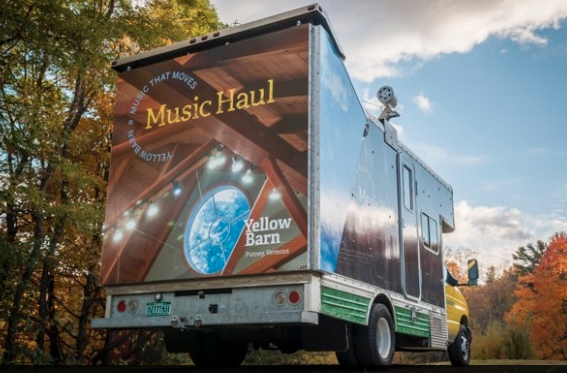
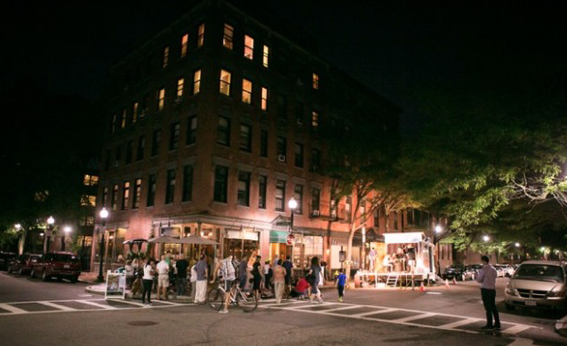
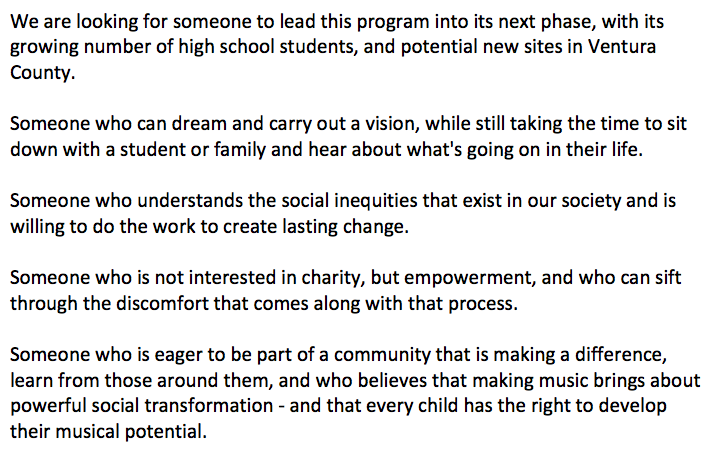
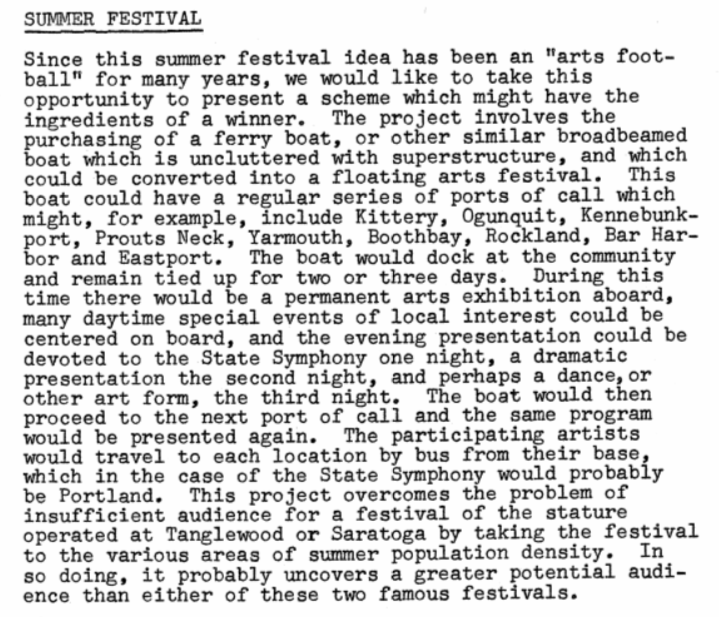
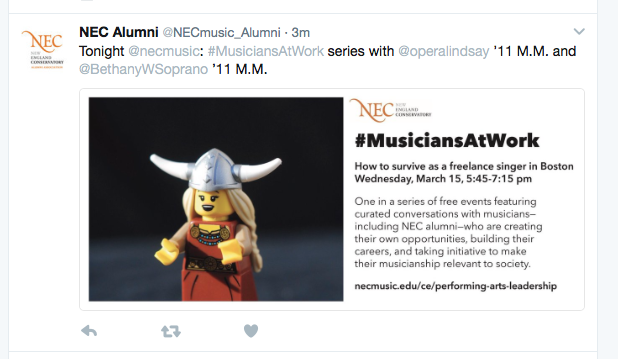
 RSS Feed
RSS Feed
